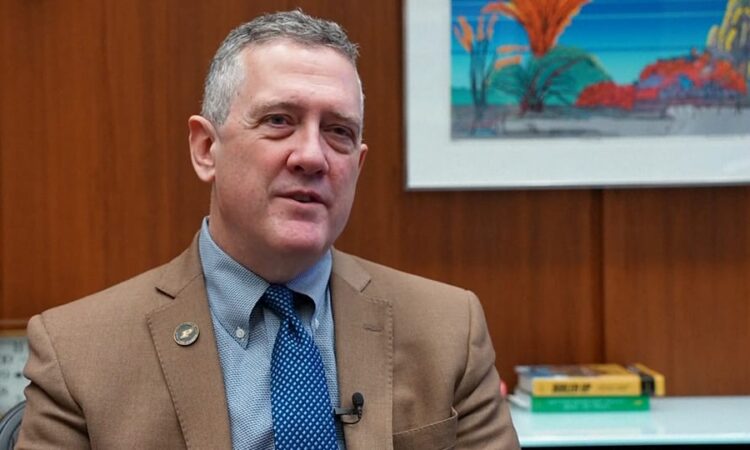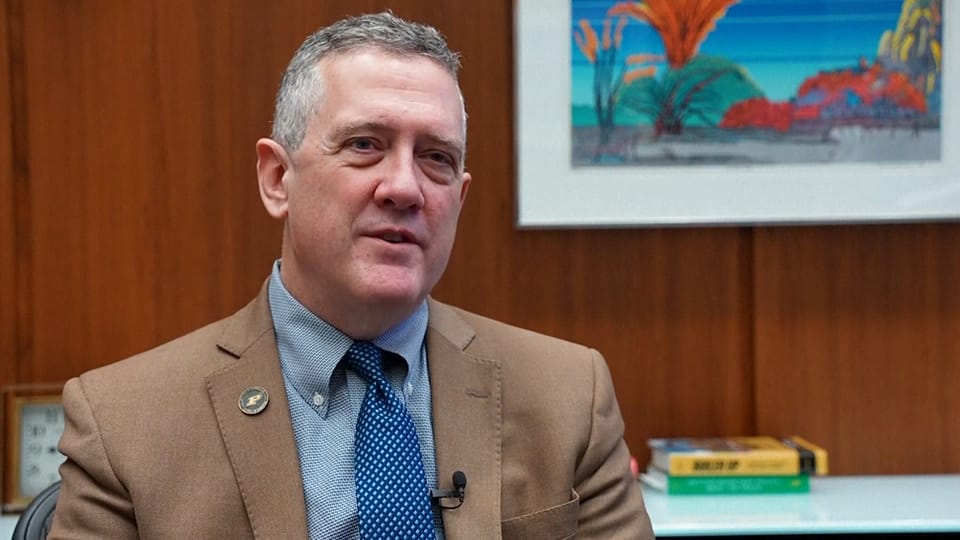

The dean of the Mitchell E. Daniels Jr. School of Business at Purdue University expects 2024 to be a good year for the U.S. economy after months of high inflation and rising interest rates.
Jim Bullard, the former president and CEO of the Federal Reserve Bank of St. Louis, said inflation is expected to continue to decline after coming down “precipitously” in 2023.
“This year, the real economy has been growing at an above trend pace,” Bullard said. “It will probably slow down a little bit, but it will be at the trend pace, so that’s pretty much the definition of a soft landing for the U.S. economy. That’s what Wall Street is expecting. That’s what I’m expecting.”
In an interview for the Associated Press, Bullard said while he expects good news for the economy, there are always risks.
“In any year, global geopolitical risk is a big factor, but it’s a bigger factor this year than in other years,” he said. “You’ve got two wars going on in Ukraine-Russia, a land war in Europe, and you also have conflict in the Middle East between Israel and Hamas. Either one of those could easily expand in some unpredictable way. It could lead other actors around the world to choose to do nefarious things in various ways.”
Bullard said most of that risk would feed into commodity markets, causing volatility in pricing that could affect the whole global economy, including the U.S.
Wall Street is expecting an interest rate decrease from the Federal Reserve as early as March or possibly later into the spring, Bullard said. For that to happen, he said the preferred measure of inflation—which is currently at 3.2%—would need to fall below 3%.
“Because the real economy is doing quite well, the committee can always wait a little longer if it wants, and push any rate decreases out till later in the year,” Bullard said.
Bullard noted that if inflation continues to fall at its current pace, the U.S. could reach the Fed’s goal of 2% inflation by the third quarter.
“And that’s why Wall Street’s become so optimistic about rate cuts coming from the Fed,” he said. “But the real economy is doing great, and so there’s no urgency coming from that dimension.”
Story Continues Below






